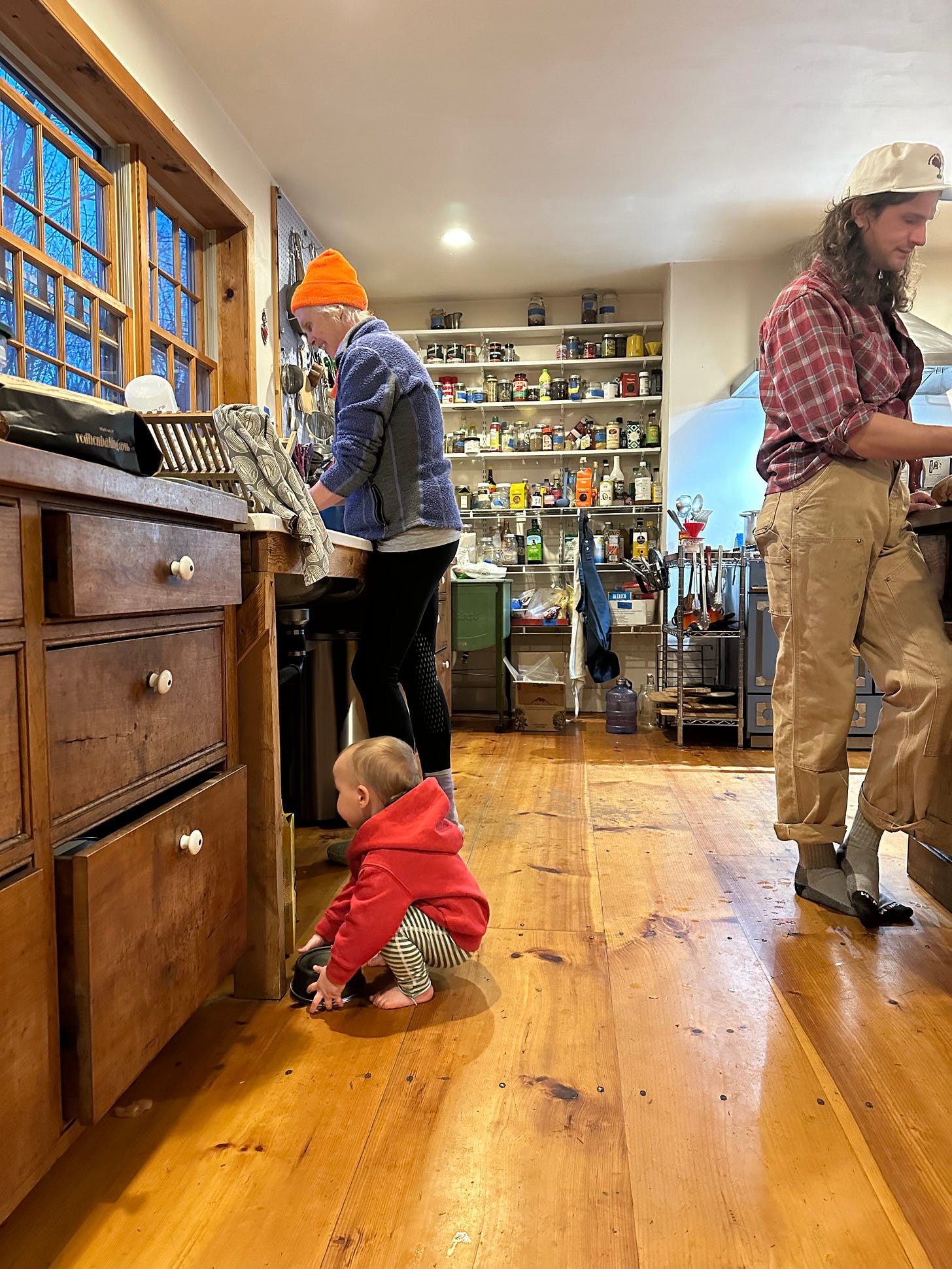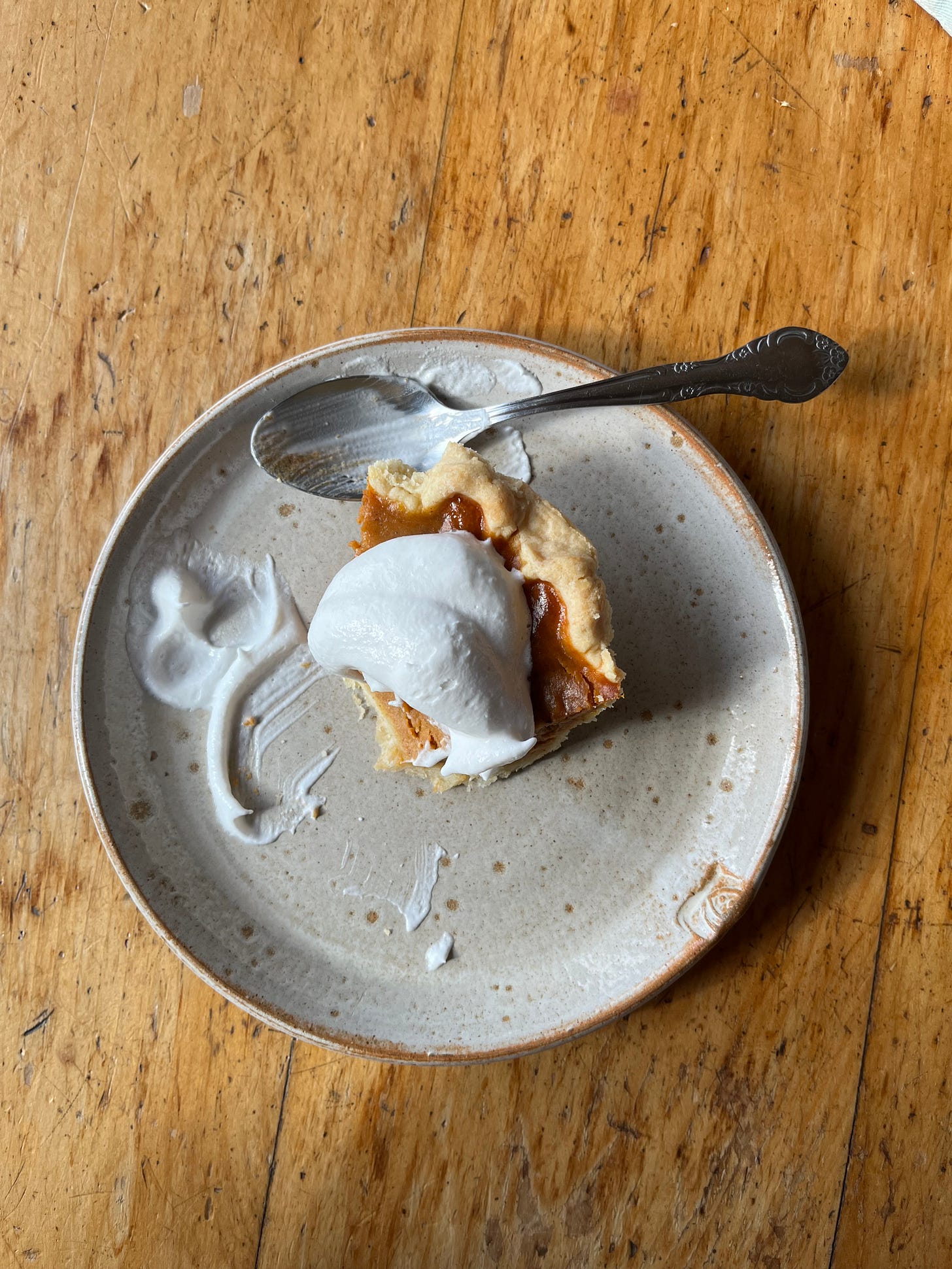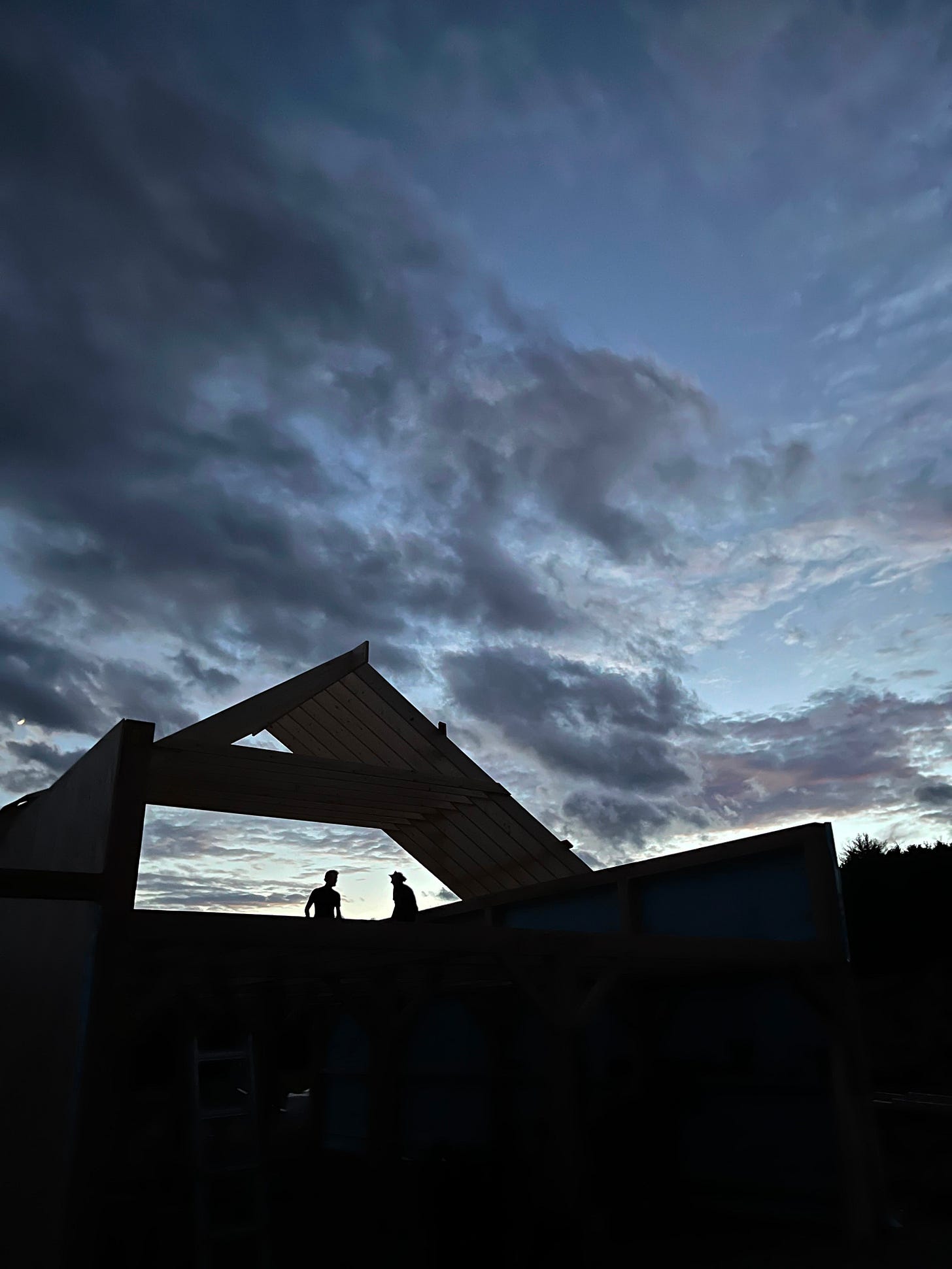It’s raining. God knows we need the rain. The Northeast is catching fire along with so many other parts of the country. My meetings and obligations have been cancelled. The dogs are taking a long morning nap. I’m embracing the quiet, the calm before the storm, the preparation, keeping the kindling dry.
The practical Moon in me has something to say: Don’t sweat the small stuff. Consider it all an experiment and take risks, enjoy yourself.
In a previous life, I’m pretty sure I was a logging camp kitchen manager in an ancient forest that doesn’t exist anymore. An overseer of a massive wood-fired cookstove with a pot of forever burnt hot coffee and extra place settings washed, dried and on the ready for an endless parade of tired and hungry.
Feeding people is in my bones. The more people, the better. Like during our barn raising a few weeks back, over the election. That was six or seven days of cooking alongside my son Elijah—all the meals for the crew who were doing the heavy lifting. Like the crane operating. The timber-framing. The nail-gunning and the post and beam balancing. I could barely watch their work-dance between the saws, the wood and gravity. And they did it. Within a week we went from ground to roof peak. I am gobsmacked. The horses will have a home.

I try to feed people well. Construction is highly skilled, dangerous creative work, and physical labor. So multiple meals and snacks per day were planned for, shopped for, cooked, and cleaned up after. Leftovers were useful and eaten for gold stars all around. My kitchen was busy as was my laundry. Dogs and babies, friends, neighbors and horsewomen were curious and dropped by. It took me a week to recover, I’m not shy to say.

So as the collective We, rounds into holiday season with the feast known as Thanksgiving, it’s prudent to recognize that there are meals up to and after the main event. Breakfasts, lunches and dinners for your crew. So I offer you a practical way of thinking about the planning not just for the one feast but for all the meals before and after. First look at what you already have in your pantry and then decide on recipes. Build the meal(s) around that, figuring out the kitchen prep it’ll take ahead of time, and then make your shopping lists.
It all starts in the pantry/freezer/fridge:
What do you have plenty of. Choose your recipes accordingly. Use it up. Save money. For me that’s dried beans, almond flour, pecans and 50 lbs. of potatoes.
What do you have enough of. Use it up too. But you’re not so close to the edge of empty that you’re going to run out if of mid-cooking or it’s something you can sub out for (like semi-sweet chocolate for dark chocolate, for example).
What do you want/need to buy ahead of time. So you don’t have to randomly run to the market for one or two things. I want to use local celery and it’s not always easy to find but well worth the effort.
Improvise. This list comes in the doing. Notes written into the margins of the recipes for next time. So if/when you are missing an ingredient—a smidge of something—a dash of another—the world’s not going to end from that and neither the dish nor the feast will suffer.
Indeed, most guests will remember how you used garam masala instead cinnamon in the pie (because you didn’t have any). So take some deep breaths and follow your instincts and your kitchen wisdoms, if you find yourself without.
Go back into your pantry and take a good look around. Do a little interweb searching if need be and wing it. You’ll be fine. “Consider everything an experiment.” (Including traditions: my note.) This is Rule 4 from the Immaculate Heart College Art Department Rules, the poster that hangs in our bathroom.
Lastly, a bit of sage advice from my friends’ Nonna, may her memory be a blessing. “Boil potatoes and do laundry in the morning because you never know what the day will bring.” Amen to that.
I’m so glad we’re here. I hope you cook and eat well together in peace.





I want to be in that kitchen, Alice. Thanks for this cozy read on a rainy morning in CA.